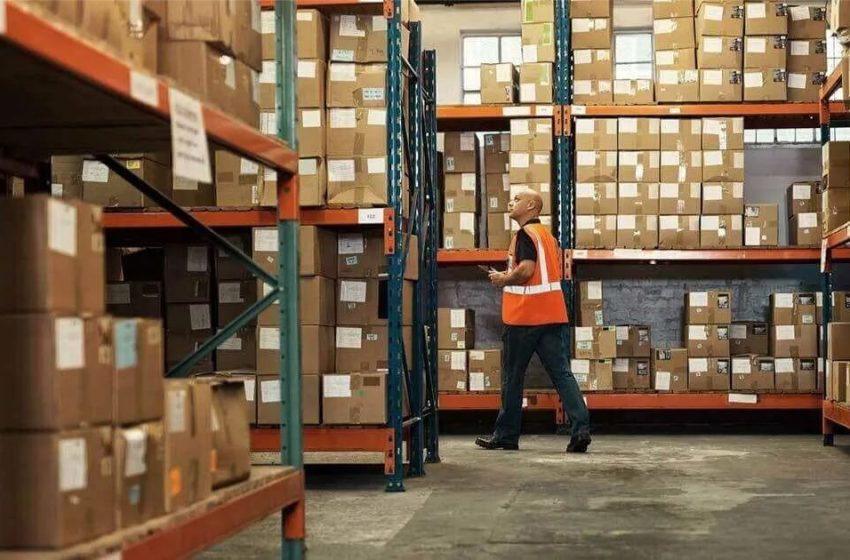The Comprehensive Guide to Wholesale Distributors: How They Impact the Market and How to Work with Them

In the world of commerce, Distributors play a pivotal role in connecting manufacturers with retailers or direct consumers. A wholesale distributor is a company or individual who purchases products in bulk from manufacturers or suppliers and sells them to retailers, businesses, or sometimes even directly to consumers at a marked-up price. These distributors handle large quantities of goods, and their operations are central to the supply chain of many industries, including fashion, electronics, food, and more.
This article will provide a detailed understanding of wholesale distributors, how they operate, their role in the market, and how businesses can effectively work with them to optimize their operations.
What is a Wholesale Distributor?
A wholesale distributor is an intermediary entity that purchases large volumes of products from manufacturers or suppliers and resells them to retailers, businesses, or other entities. Their business model revolves around bulk purchases and the ability to sell products at a margin. Distributors often offer various products from multiple manufacturers or suppliers, providing businesses with a broad selection of goods in one location.
There are generally two types of wholesale distributors:
-
General Wholesale Distributors: These distributors carry a wide range of products from different manufacturers and industries. They may offer everything from electronics and clothing to furniture and food items.
-
Specialized Wholesale Distributors: These distributors focus on a specific niche or product category. For example, a specialized distributor might focus solely on automotive parts, beauty products, or high-end fashion.
How Wholesale Distributors Operate
Wholesale distributors play a critical role in the supply chain. Below are the basic functions they perform:
Bulk Purchasing
Distributors generally buy goods in large quantities from manufacturers or suppliers. This bulk purchasing allows them to take advantage of volume discounts, ensuring that they can resell these products at a higher price to retailers while still offering competitive rates.
Storage and Warehousing
Wholesale distributors typically have storage facilities or warehouses where they keep the products in stock before they are sold. These facilities allow them to manage inventory, handle returns, and ensure a steady flow of products to customers.
Logistics and Distribution
Distributors manage the logistics of getting the products from manufacturers to retailers or consumers. This could involve transporting goods from domestic suppliers or international imports. Some distributors also handle the packaging and labeling of products before they are sold.
Sales and Marketing
Although distributors are not directly selling to consumers, they still market products to retailers and other businesses. They maintain relationships with retailers, and in some cases, they even provide marketing materials and promotional support to help retail businesses sell more products.
Customer Service and Support
Distributors often provide support to their retail clients, helping them with product information, technical support, and troubleshooting. They may also provide training for businesses on how to sell or use the products they are distributing.
The Role of Wholesale Distributors in the Supply Chain
Wholesale distributors are a crucial link in the supply chain. They help connect manufacturers with retailers and sometimes end consumers. They offer several benefits to both manufacturers and retailers.
For Manufacturers:
- Reduced Costs: Manufacturers don’t have to spend money and resources on managing retail relationships, marketing, or distributing products. Distributors handle this entire function, allowing manufacturers to focus on production.
- Wider Reach: Through distributors, manufacturers can get their products into different markets without needing to build their own sales and distribution channels.
For Retailers:
- Ease of Access: Retailers don’t have to deal directly with multiple manufacturers. Instead, they can work with Wholesale distributors who offers a range of products from various suppliers.
- Lower Risk: Purchasing from a distributor often comes with lower upfront costs compared to buying directly from manufacturers, which is beneficial for retailers with limited capital.
- Faster Turnaround: Wholesale distributors generally have established logistics operations that allow them to get products to retailers quickly. This is particularly important in industries with rapidly changing trends.
Advantages of Working with Wholesale Distributors
There are several benefits for businesses to work with wholesale distributors rather than dealing directly with manufacturers.
1. Cost-Effectiveness
Distributors typically offer lower prices due to their bulk purchasing power. By buying from them, businesses can save money and reduce overhead costs compared to sourcing products directly from manufacturers.
2. Increased Efficiency
Distributors handle much of the work involved in logistics, such as warehousing, inventory management, and shipping. This makes the process faster and more efficient for retailers and businesses that don’t have the resources to manage this themselves.
3. Wide Product Selection
Wholesale distributors often carry a broad selection of products from various manufacturers. This allows businesses to diversify their offerings without needing to establish relationships with multiple manufacturers or suppliers.
4. Risk Reduction
By purchasing from wholesale distributors, businesses can reduce the financial risk involved in managing large inventories. Since distributors often allow businesses to purchase products on a smaller scale, businesses can adjust their inventory based on customer demand without committing to large orders.
5. Local and Global Reach
For businesses looking to expand into new markets, working with wholesale distributors offers a low-risk way to reach new territories. Distributors often have established networks that businesses can leverage to access global markets.
How to Choose the Right Wholesale Distributor
Choosing the right wholesale distributor can significantly impact a business’s operations and success. Here are several key factors to consider when selecting a distributor:
1. Product Range
Look for a distributor that offers the type of products you need and that aligns with your business’s niche. Some distributors specialize in specific product categories, while others offer a wider range of products.
2. Reputation
Research the distributor’s reputation in the market. Read reviews, seek feedback from other businesses, and check how long the distributor has been in business. A trustworthy distributor will ensure timely deliveries, good customer service, and high-quality products.
3. Pricing
Compare prices across different distributors to ensure you’re getting the best deal. While distributors sell at a markup, their prices should still allow you to make a reasonable profit margin when reselling.
4. Reliability and Shipping
Check how reliable the distributor is in terms of fulfilling orders. Can they deliver on time? Do they offer flexible shipping options? Shipping delays can have a huge impact on your business, so working with a reliable distributor is key.
5. Customer Service
A good distributor will provide excellent customer service. They should be responsive to your inquiries, address issues promptly, and help you with any concerns regarding your orders.
Challenges Faced by Wholesale Distributors
While wholesale distributors provide many benefits, they also face certain challenges:
1. Intense Competition
There are many wholesale distributors in various industries, and the competition can be fierce. To stay ahead, distributors must maintain good relationships with suppliers and ensure they offer competitive pricing.
2. Supply Chain Disruptions
Distributors rely on a smooth supply chain, but disruptions like natural disasters, trade restrictions, or transportation issues can lead to stock shortages or delays.
3. Price Fluctuations
Wholesale distributors must manage price fluctuations in raw materials or goods from suppliers. These price changes can affect profit margins, requiring distributors to adjust their pricing strategies.
Conclusion
Wholesale distributors are essential to the supply chain, offering cost-effective and efficient solutions for businesses to source products. Whether you’re a retailer looking to stock your shelves or a business looking to expand into new markets, partnering with the right wholesale distributor can significantly enhance your operations. By considering factors such as pricing, product range, reputation, and reliability, businesses can find a Gt Distributor that best suits their needs. Understanding the role of wholesale distributors and how they fit into the larger picture of commerce is crucial for businesses seeking growth and sustainability in the marketplace.




